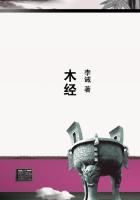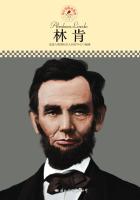It was the well-known proposal of Sir Matthew Decker that all commodities, even those of which the consumption is either immediate or very speedy, should be taxed in this manner, the dealer advancing nothing, but the consumer paying a certain annual sum for the licence to consume certain goods.The object of his scheme was to promote all the different branches of foreign trade, particularly the carrying trade, by taking away all duties upon importation and exportation, and thereby enabling the merchant to employ his whole capital and credit in the purchase of goods and the freight of ships, no part of either being diverted towards the advancing of taxes.The project, however, of taxing, in this manner, goods of immediate or speedy consumption seems liable to the four following very important objections.First, the tax would be more unequal, or not so well proportioned to the expense and consumption of the different contributors as in the way in which it is commonly imposed.The taxes upon ale, wine, and spirituous liquors, which are advanced by the dealers, are finally paid by the different consumers exactly in proportion to their respective consumption.But if the tax were to be paid by purchasing a licence to drink those liquors, the sober would, in proportion to his consumption, be taxed much more heavily than the drunken consumer.A family which exercised great hospitality would be taxed much more lightly than one who entertained fewer guests.Secondly, this mode of taxation, by paying for an annual, half-yearly, or quarterly licence to consume certain goods, would diminish very much one of the principal conveniences of taxes upon goods of speedy consumption the piecemeal payment.In the price of threepence halfpenny, which is at present paid for a pot of porter, the different taxes upon malt, hops, and beer, together with the extraordinary profit which the brewer charges for having advanced them, may perhaps amount to about three halfpence.If a workman can conveniently spare those three halfpence, he buys a pot of porter.If he cannot, he contents himself with a pint, and, as a penny saved is a penny got, he thus gains a farthing by his temperance.He pays the tax piecemeal as he can afford to pay it, and when he can afford to pay it, and every act of payment is perfectly voluntary, and what he can avoid if he chooses to do so.Thirdly, such taxes would operate less as sumptuary laws.
When the licence was once purchased, whether the purchaser drank much or drank little, his tax would be the same.Fourthly, if a workman were to pay all at once, by yearly, half-yearly, or quarterly payments, a tax equal to what he at present pays, with little or no inconveniency, upon all the different pots and pints of porter which he drinks in any such period of time, the sum might frequently distress him very much.This mode of taxation, therefore, it seems evident, could never, without the most grievous oppression, produce a revenue nearly equal to what is derived from the present mode without any oppression.In several countries, however, commodities of an immediate or very speedy consumption are taxed in this manner.In Holland people pay so much a head for a licence to drink tea.I have already mentioned a tax upon bread, which, so far as it is consumed in farm-houses and country villages, is there levied in the same manner.
The duties of excise are imposed briefly upon goods of home produce destined for home consumption.They are imposed only upon a few sorts of goods of the most general use.There can never be any doubt either concerning the goods which are subject to those duties, or concerning the particular duty which each species of goods is subject to.They fall almost altogether upon what I call luxuries, excepting always the four duties above mentioned, upon salt soap, leather, candles, and, perhaps, that upon green glass.
The duties of customs are much more ancient than those of excise.They seem to have been called customs as denoting customary payments which had been in use from time immemorial.
They appear to have been originally considered as taxes upon the profits of merchants.During the barbarous times of feudal anarchy, merchants, like all the other inhabitants of burghs, were considered as little better than emancipated bondmen, whose persons were despised, and whose gains were envied.The great nobility, who had consented that the king should tallage the profits of their own tenants, were not unwilling that he should tallage likewise those of an order of men whom it was much less their interest to protect.In those ignorant times it was not understood that the profits of merchants are a subject not taxable directly, or that the final payment of all such taxes must fall, with a considerable overcharge, upon the consumers.
The gains of alien merchants were looked upon more unfavourably than those of English merchants.It was natural, therefore, that those of the former should be taxed more heavily than those of the latter.This distinction between the duties upon aliens and those upon English merchants, which was begun from ignorance, has been continued from the spirit of monopoly, or in order to give our own merchants an advantage both in the home and in the foreign market.
With this distinction, the ancient duties of customs were imposed equally upon all sorts of goods, necessaries as well as luxuries, goods exported as well as goods imported.Why should the dealers in one sort of goods, it seems to have been thought, be more favoured than those in another? or why should the merchant exporter be more favoured than the merchant importer?















